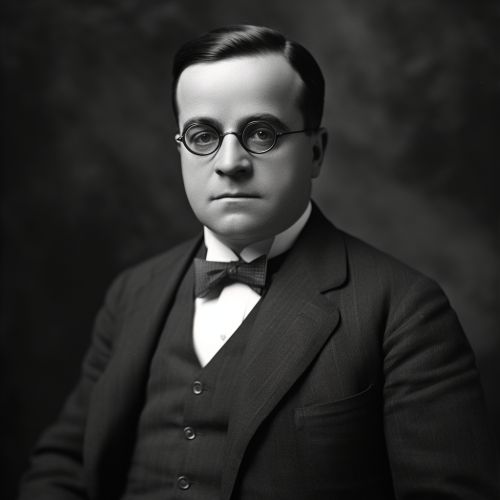Georges Lemaître
Early Life and Education
Georges Lemaître was born on 17 July 1894 in Charleroi, Belgium. He was the eldest of four children in his family. His father, Joseph Lemaître, was a lawyer and his mother, Marguerite Lemaître, was a housewife. The family was devoutly Catholic, which would later influence Lemaître's philosophical and scientific views.
Lemaître began his education at a Jesuit school in Charleroi, where he showed a keen interest in mathematics and physics. After graduating from secondary school, he enrolled at the Catholic University of Louvain in 1911, where he studied civil engineering. However, his studies were interrupted by the outbreak of World War I. Lemaître served in the Belgian army as an artillery officer, and after the war, he returned to the university to complete his degree.


In 1920, Lemaître decided to switch his focus from engineering to physics and mathematics. He completed his doctorate in 1920, with a thesis on celestial mechanics, which marked the beginning of his lifelong fascination with cosmology.
Career and Research
After completing his doctorate, Lemaître spent a year as a postdoctoral researcher at the University of Cambridge, where he worked with astronomer Arthur Eddington. He then spent a year at Harvard College Observatory, where he became acquainted with Edwin Hubble's observations of galaxies receding from the Milky Way. This observation would later form the basis of Lemaître's groundbreaking theory.
In 1925, Lemaître returned to Belgium and became a professor at the Catholic University of Leuven. He continued his research in cosmology, focusing on the implications of Einstein's theory of relativity for the structure and evolution of the universe.
In 1927, Lemaître published a paper in which he proposed that the universe is expanding. This was based on his interpretation of the redshifts of galaxies, which he argued were a result of the galaxies moving away from us. This theory, now known as the Big Bang theory, was initially met with skepticism, but was later confirmed by Hubble's observations.
Lemaître also proposed the concept of the 'primeval atom', or the 'Cosmic Egg', which he suggested was the state of the universe at the moment of the Big Bang. This idea was a precursor to the modern concept of the singularity at the start of the Big Bang.
In 1933, Lemaître was elected a member of the Pontifical Academy of Sciences, and he served as its president from 1960 until his death in 1966.
Legacy and Honors
Lemaître's work has had a profound impact on the field of cosmology. His theory of an expanding universe has been widely accepted and forms the basis of the modern Big Bang theory. His concept of the 'primeval atom' has also been influential, and is reflected in the current understanding of the singularity at the start of the Big Bang.
In recognition of his contributions to science, Lemaître received numerous awards and honors. In 1934, he was awarded the Francqui Prize, the highest scientific honor in Belgium. In 1953, he was awarded the Eddington Medal by the Royal Astronomical Society.
In 2005, the International Astronomical Union named a crater on the Moon after Lemaître. In 2018, the European Space Agency announced that its next major space telescope, due to launch in 2022, will be named the Euclid mission, in honor of Lemaître.
Personal Life and Death
Lemaître was known for his deep religious faith, and he was ordained a priest in 1923. He saw no conflict between his faith and his scientific work, and he often spoke about the harmony between science and religion.
Lemaître died on 20 June 1966 in Leuven, Belgium. His contributions to cosmology continue to be recognized and celebrated in the scientific community.
See Also


